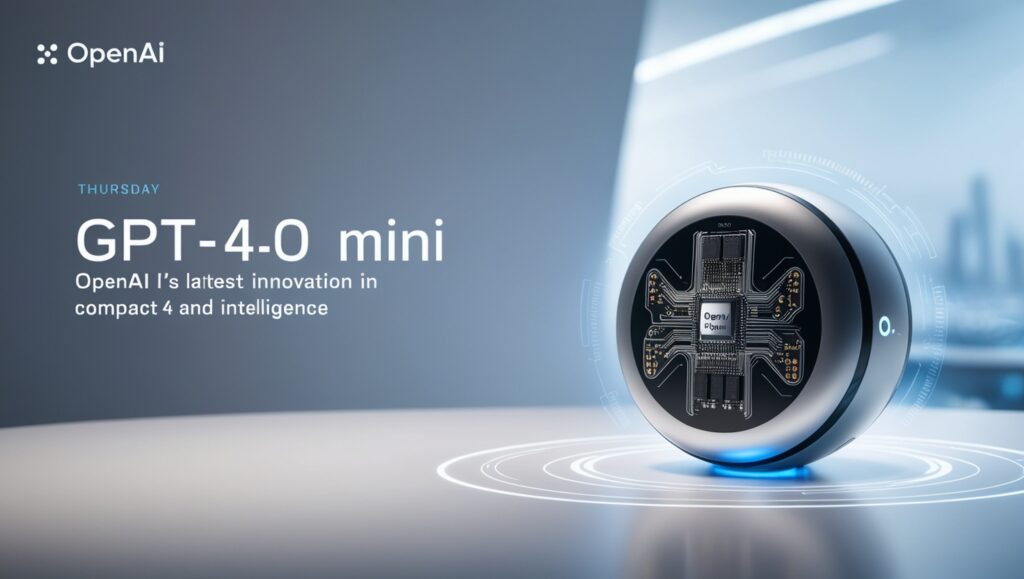On Thursday, OpenAI unveiled GPT-4o mini, their newest little AI model. The business claims that GPT-4o mini, which is faster and less expensive than OpenAI’s existing state-of-the-art AI models, is now available for developers and users of the ChatGPT web and mobile app. Next week, access will be available to enterprise users.
In reasoning tasks including text and vision, the business claims that GPT-4o mini beats industry-leading mini AI models. Due to their speed and cost-effectiveness in comparison to larger models like GPT-4 Omni or Claude 3.5 Sonnet, tiny AI models are growing in popularity among developers. For frequent, straightforward tasks that developers may ask an AI model to perform, they’re a good choice.
The GPT-3.5 Turbo will be replaced by the GPT-4o tiny as OpenAI’s smallest variant. According to statistics from Artificial Analysis, the company’s most recent AI model scored 82% on the MMLU benchmark, which measures reasoning, as opposed to 79% for Gemini 1.5 Flash and 75% for Claude 3 Haiku. GPT-4o mini earned 87% on the MGSM, a test of math thinking, while Flash and Haiku got 78% and 72%, respectively.
Additionally, OpenAI claims that GPT-4o small is more than 60% less expensive to operate than GPT-3.5 Turbo and much more affordable to run than its prior frontier models. The GPT-4o small model now supports text and vision through the API; but, according to OpenAI, video and audio capabilities will be added in the future.
Olivier Godement, head of Product API at OpenAI, stated that in order for AI to empower every corner of the globe, the models must be made considerably more inexpensive. GPT-4o mini, in his opinion, is a huge advancement in that regard.
Priced at 15 cents per million input tokens and 60 cents per million output tokens, GPT4o small is available to developers via OpenAI’s API. The model has an October 2023 knowledge cutoff and a context window of 128,000 tokens, or around the length of a book.
The precise size of GPT-4o tiny is unknown, however according to OpenAI, it is about the same size as other compact AI models as Llama 3 8b, Claude Haiku, and Gemini 1.5 Flash. However, based on pre-launch testing in the LMSYS.org chatbot space, the business asserts that GPT-4o mini is quicker, cost-effective, and smarter than industry-leading small models. Initial independent tests appear to support this.
With a median output speed of 202 tokens per second, the GPT-4o mini is incredibly fast in comparison to similar models, according to a George Cameron, Co-Founder of Artificial Analysis. This is an attractive offering for speed-dependent use-cases, such as many consumer apps and agentic approaches to employing LLMs, as it is more than two times quicker than GPT-4o and GPT-3.5 Turbo.
The latest technologies from OpenAI for ChatGPT Enterprise
Separately, OpenAI on Thursday revealed new capabilities for business clients. OpenAI revealed the Enterprise Compliance API in a blog post, designed to assist companies in highly regulated sectors including finance, healthcare, legal services, and government with adhering to audit and logging regulations.
According to the company, administrators will be able to audit and act upon their ChatGPT Enterprise data with these capabilities. Time-stamped logs of all interactions, including chats, files uploaded, workspace users, and more, will be made available via the API.
Additionally, workspace GPTs—a customized version of ChatGPT made for certain business use cases—are receiving more granular management from OpenAI for administrators. Workspace owners may now designate a list of domains that GPTs are permitted to communicate with, whereas previously, administrators could only completely permit or prohibit GPT operations made within their workspace.








